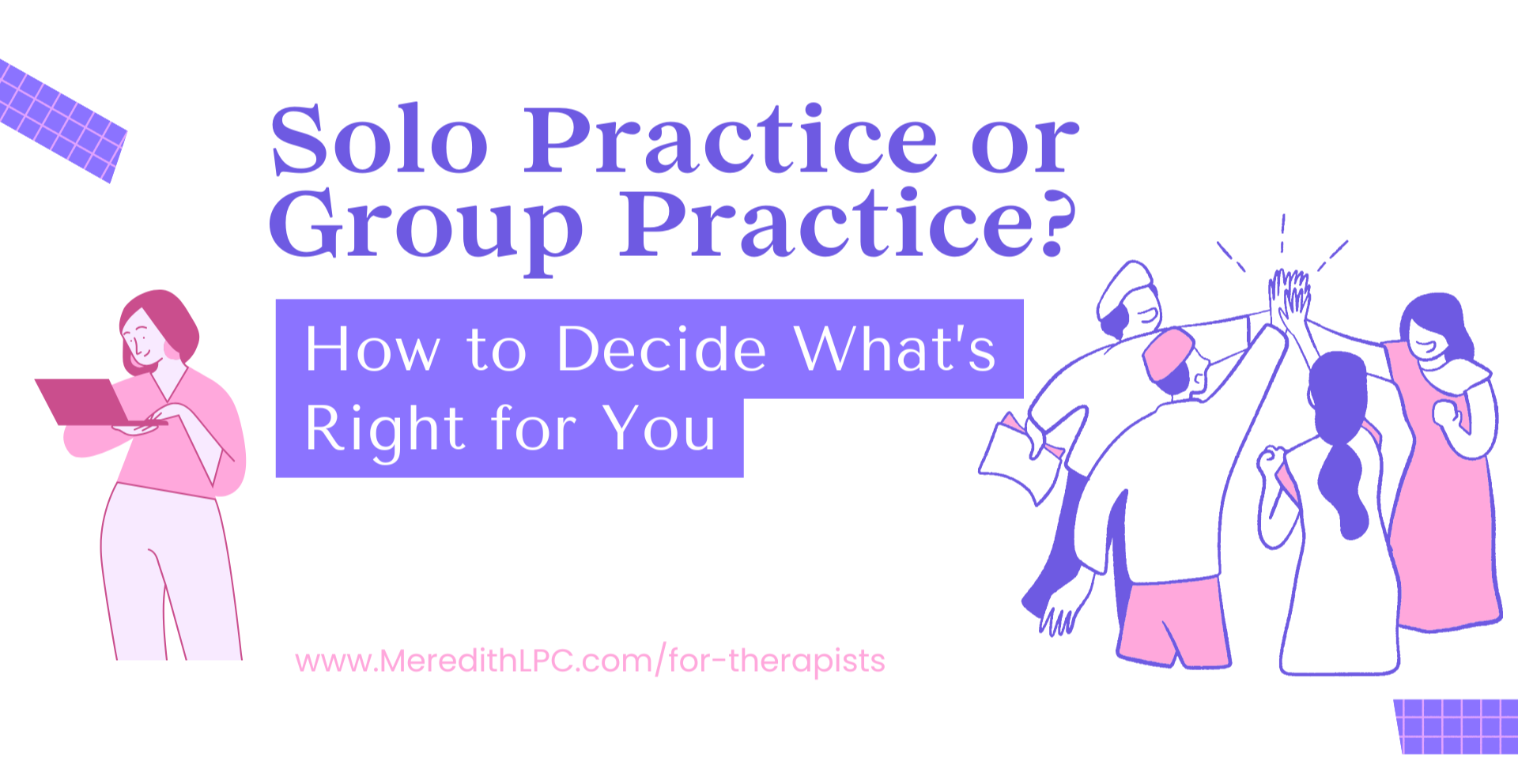Private Practice Burnout: Signs, Prevention, and Recovery
Running a private practice can be incredibly rewarding—but let’s be honest, it can also be exhausting. Between seeing clients, managing admin tasks, dealing with insurance, marketing your business, and trying to maintain a personal life, burnout can sneak up fast.
As someone who supports therapists in building sustainable, fulfilling practices, I see the emotional, physical, and mental toll burnout takes far too often. The good news? Burnout isn’t the end of the road—it’s a signal that something needs to shift.
In this post, I’ll walk you through how to recognize the signs of private practice burnout, how to prevent it before it spirals, and what recovery can actually look like.
What Is Private Practice Burnout?
Burnout is more than just feeling tired. It’s a state of chronic physical and emotional exhaustion, often accompanied by cynicism, reduced effectiveness, and a loss of connection to your work. In private practice, burnout can be especially tricky because we don’t always have coworkers or supervisors to notice the warning signs for us. It’s up to us to pay attention—and that’s not always easy when we’re running on fumes.
Common Signs of Burnout in Private Practice
If any of these sound familiar, you may be approaching burnout—or already there:
Dreading client sessions or feeling emotionally numb
Struggling to focus or feeling mentally foggy between sessions
Feeling resentful of clients, paperwork, or even your own schedule
Frequent physical symptoms like headaches, fatigue, or sleep issues
Noticing a drop in motivation or questioning your competence as a therapist
Constantly working “off the clock” but still feeling behind
Burnout doesn’t always look dramatic. Sometimes it’s just the slow erosion of joy and energy, replaced by dread, guilt, or detachment.
Why Private Practice Burnout Happens
Therapists in private practice are especially vulnerable to burnout because we wear so many hats: clinician, entrepreneur, administrator, biller, scheduler, marketer—you name it. Add in perfectionism, poor boundaries, and high emotional labor, and it’s a perfect storm.
Many therapists are also navigating:
Unreasonable caseloads
Isolation from working solo
Financial stress and inconsistent income
Pressure to “do it all” and never drop the ball
It’s no wonder so many of us find ourselves depleted.
Preventing Burnout Before It Starts
Burnout prevention starts with intentional systems and boundaries. Some of the most effective strategies include:
Set sustainable caseload limits. More clients isn’t always better.
Create clear work hours—and stick to them. Yes, that means logging off.
Build community. Supervision, consultation groups, or just coffee chats with other therapists can go a long way.
Delegate and automate. Use tools and services to streamline admin work.
Take regular breaks and vacations. Not just once a year—regularly.
Say no more often. Every time you say yes to something draining, you say no to something that fuels you.
A sustainable practice isn’t selfish—it’s necessary.
Recovering from Burnout
If you’re already burned out, it’s not too late to get back on track. Recovery is possible, and it starts with permission to pause. You might need to:
Take a break or reduce your caseload temporarily
Seek your own therapy or support
Reassess your business model (Are you taking insurance? Are your fees sustainable?)
Revise your schedule to align with your energy
Work with a consultant to reimagine a practice that actually works for you
Take a training that’s fun and interesting—something that reignites your passion or reminds you why you got into this work in the first place
Burnout recovery takes time, self-compassion, and support—but you don’t have to do it alone.
Ready to Build a Practice That Supports You?
If you're feeling stuck, overwhelmed, or unsure how to move forward, I offer one-on-one consultation for therapists who want to create healthier, more balanced practices. Whether you’re in the thick of burnout or trying to prevent it, I can help you build a path forward that feels sustainable and aligned with your values.
Schedule a consultation appointment here and take the first step toward a more grounded, fulfilling private practice.
Related Articles: Imposter Syndrome in Private Practice: How to Overcome Self-Doubt
The Best Productivity Tools for Private Practice Therapists (That Actually Make Your Life Easier)


